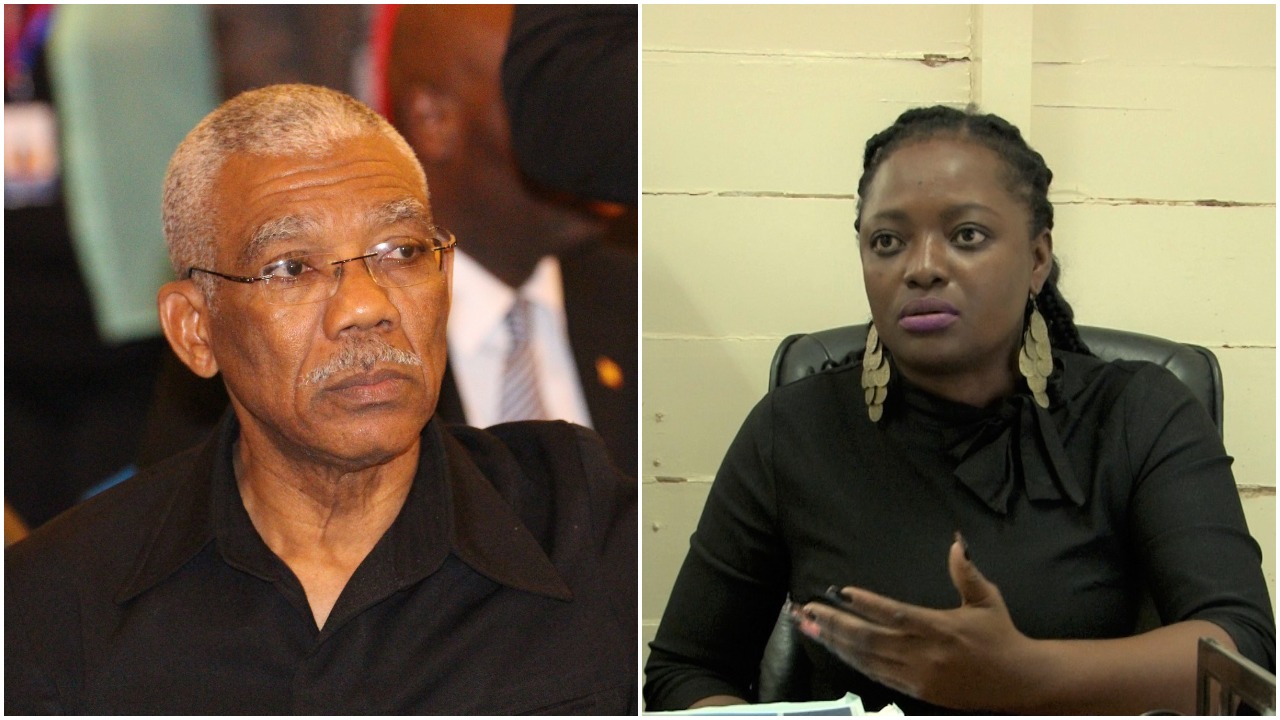By Kurt Campbell
Exactly one week after withdrawing her membership from the People’s National Congress Reform (PNC/R), attorney-at-law, Thandi McAllister, maintains that her upset is with the current leadership of the party where former President, David Granger, sits at the helm.
Granger had led the PNC/R and the wider APNU+AFC Coalition into the March 2020 election – an election he lost after a mere five years in government.
And while McAllister is grateful for his leadership, she believes it is time for change.
“I believe the former President has served his time. Perhaps, he has served well when it was most needed but he provided a catalyst for change and I earnestly believe that change should have taken place for quite a while,” McAllister told the News Room during an exclusive interview on Tuesday.
Granger has faced a bombardment of public criticism over his leadership of the coalition since his defeat at the 2020 polls.
And although McAllister’s three-lined resignation letter proffered no explanation, she claims to have always been vocal about her concerns throughout her more than 25 years of service to the PNC/R and especially during her final days.
Asked to who and at what level she sought to address her concerns, McAllister reminded that up to her time of resignation, she sat on the Central Executive Committee of the party.
“I found that the current leadership was not the best suited for the party and it really does not take into consideration the best interest of its support base. I also found that the interest of the youth was not fully advanced. Those are the principal reasons which informed the decision,” she said.
McAllister, who bore no feelings of regret or shame to resign from the PNC/R, explained that it was a building block effect that motivated her to take action.
The politician, who served previously as the Chairman of Region #3 and largely responsible for the increase in votes the coalition got at the last elections in that Region, also said that “progressive thinkers need progressive environment. I don’t think the PNC/R represents the type of environment I would need.
McAllister also served as the former Chairman of the Guyana Youth and Student Movement – the youth arm of the PNC/R. She revealed that her decision to leave the party was formulating for quite a while but only operationalised last week, although not directly related to the latest decision by Granger to admit two newly formed parties – Guyana Nation Builders Movement and the Equal Rights and Justice Party – to the wider APNU Coalition, without consultation.
She said she held off on leaving for a long time because she thought it best to give the party a fair chance to align herself in the direction it was being led.
“It was a difficult journey but I am at peace with the decision. I am living my truth and my conscience is clear.”
She believes that she has given her best years to the PNC/R in political and youth activism.
McAllister admitted in the interview that she campaigned with the party in the run-up to the March 2020 elections while battling internal issues.
“I thought I owed it to my constituents as Chairman of the Region… to accompany them on the campaign trail.”
She intends to now focus on her career as a lawyer and maritime professional; she believes she can continue to give back to society outside of a political institution or politics.
“I have not given any consideration to returning to political activism in the medium or short term,” she said.
And with her family having a long history of support and membership in the PNC/R, McAllister has assured that they have been surprisingly supportive of her decision to withdraw her membership.
“Given the relationship and history and involvement that we have, individually and collectively with the party, I am grateful for their embrace and support and respect for my decision. I hadn’t, up to this point, anyone objecting or saying that they hate me because of it… they have been very supportive because my decision is based on solid reasons,” she added.
She also has a message for the youth who remain as servants to the party.
“It is ok to chart a course and to follow a path with which you feel comfortable, a path that gives some justification to what you are doing, a path you believe will lead to the type of results which you desire… it is ok to follow that path.”













